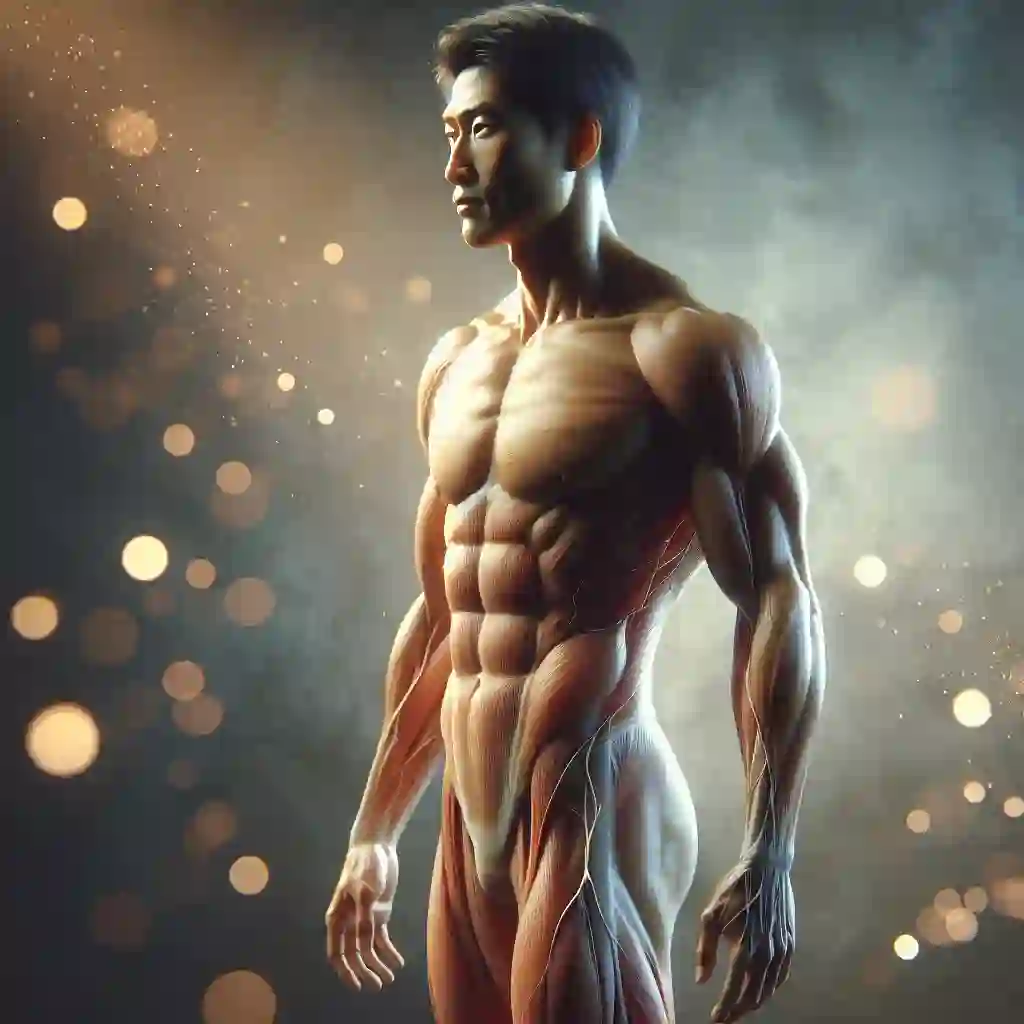bodyの語源(語根)と覚え方
古英語
bodig- 胴体
英語
body- 1名詞体
- 2名詞団体
詳しい語源
英単語「body」は、古英語の「bodig」に由来し、これは「人間や動物の胴体、物理的構造」を意味していました。この語は古高ドイツ語の「botah」と関連していますが、その他の起源は不明とされています。 このように、「body」は「体」を指す語として発展し、現在の「身体」や「主要部分」を意味する言葉となりました。
EnglishBattle公式X で更新情報を発信しています。
bodyから派生する単語
bodyの主な意味と例文
- 1名詞
意味 - 体
- 身体
- 肉体
the physical structure of a person or animal
例文 She took care of her body.
彼女は自分の体を大切にした。
The body of the lion is powerful.
ライオンの体は強力だ。
- 2名詞
意味 - 団体
- 集団
- 一団
a group of people or things
例文 A body of work was presented at the conference.
一連の作品が会議で発表された。
A regulatory body must approve the new guidelines.
規制機関が新しい指針を承認しなければならない。
bodyのWordNet
- 1名詞
意味 身体
the entire physical structure of an organism (an animal, plant, or human being)
生物の全体的な物理的構造(動物、植物、または人間)
和訳例 - 身体
- 全身
同義語 例文 he felt as if his whole body were on fire
彼は全身が火で燃えているかのように感じた
上位語 an object occurring naturally; not made by man
自然に発生する物体;人間によって作られたものではない
下位語 構成要素 the system for taking in oxygen and giving off carbon dioxide; in terrestrial animals this is accomplished by breathing
酸素を取り入れ二酸化炭素を排出するシステム。陸上の動物では、これが呼吸によって行われる。
a human limb; technically the part of the superior limb between the shoulder and the elbow but commonly used to refer to the whole superior limb
人間の手足;厳密には肩から肘までの部分だが、一般的には上半身全体を指す
the system of glands that produce endocrine secretions that help to control bodily metabolic activity
体内の代謝活動を制御するのを助ける内分泌分泌物を生成する腺の体系
the substance of the body
体の物質
the system that makes food absorbable into the body
食物を体内に吸収できるようにするシステム
派生語 分野 any living or extinct member of the family Hominidae characterized by superior intelligence, articulate speech, and erect carriage
優れた知能、明瞭な発声、そして直立した姿勢を特徴とする、現存または絶滅したヒト科のいずれかのメンバー
もっと見る
- 2名詞
意味 団体
a group of persons associated by some common tie or occupation and regarded as an entity
共通のつながりや職業によって結びつけられた集団で、統一体として見なされる集団
和訳例 - 団体
- 集団
- 組織
同義語 - body
例文 the whole body filed out of the auditorium
全員が講堂から出て行った
the student body
学生団体
administrative body
行政機関
上位語 people sharing some social relation
共通の社会的関係をもつ人々
下位語 the body of faculty and students at a university
大学の教員および学生の総体
the body of members of an organization or group
組織やグループのメンバーの集まり
the body of Mullahs (Muslim scholars trained in Islam and Islamic law) who are the interpreters of Islam's sciences and doctrines and laws and the chief guarantors of continuity in the spiritual and intellectual history of the Islamic community
イスラム教の科学、教義、法を解釈し、イスラム教徒社会の精神的および知的な歴史の継続性を保証するイスラム法学者(ムッラー)の集団
the entire body of physically fit civilians eligible by law for military service
法律で軍務に適したすべての健常な市民
a body of people doing the same kind of work
同じ種類の仕事をする人々の集まり
もっと見る
- 3名詞
意味 死体
a natural object consisting of a dead animal or person
死んだ動物や人間からなる自然物
和訳例 - 死体
- 遺体
同義語 - body
- dead body
例文 they found the body in the lake
湖で遺体が見つかった
上位語 an object occurring naturally; not made by man
自然に発生する物体;人間によって作られたものではない
下位語 the body of an animal, or bodies of animals, killed by a person or another animal
人間や他の動物によって殺された動物の死体
a body embalmed and dried and wrapped for burial (as in ancient Egypt)
防腐処理され、乾燥され、埋葬のために包まれた遺体(古代エジプトのように)
the dead and rotting body of an animal; unfit for human food
動物の死体や腐敗した体で、人間の食べ物としては適さないもの
派生語 - body
invest with or as with a body; give body to
体を持たせる、具体化する
もっと見る
- 4名詞
意味 胴体
the body excluding the head and neck and limbs
頭と首、手足を除いた身体
和訳例 - 胴体
同義語 例文 they moved their arms and legs and bodies
彼らは腕や脚、胴体を動かした
上位語 any part of an organism such as an organ or extremity
器官や四肢など、生物の一部
構成要素 the middle area of the human torso (usually in front)
人間の胴体の中央部分(通常は前面)
the part of the body between the neck and the upper arm
首と上腕の間の部分
a ball-and-socket joint between the head of the humerus and a cavity of the scapula
上腕骨の頭部と肩甲骨のくぼみの間にある球状関節
any of several muscles of the trunk
胴体のいくつかの筋肉のうちのいくつか
被構成要素 the entire physical structure of an organism (an animal, plant, or human being)
生物の全体的な物理的構造(動物、植物、または人間)
もっと見る
- 5名詞
意味 物体
an individual 3-dimensional object that has mass and that is distinguishable from other objects
質量を持ち、他の物体と区別できる個別の3次元オブジェクト
和訳例 - 物体
同義語 - body
例文 heavenly body
天体
上位語 an object occurring naturally; not made by man
自然に発生する物体;人間によって作られたものではない
下位語 a threadlike strand of DNA in the cell nucleus that carries the genes in a linear order
細胞核内の線状のDNAのひも状の鎖で、遺伝子を線状の順序で運ぶ
any small intracellular body found within another (characteristic of certain diseases)
他の細胞内に見つかる小さな細胞内体(特定の疾患に特徴的)
a body having finite mass and internal structure but negligible dimensions
有限の質量と内部構造を持つが、寸法が無視できるもの
a body of matter without definite shape
一定の形を持たない物質の塊
もっと見る
